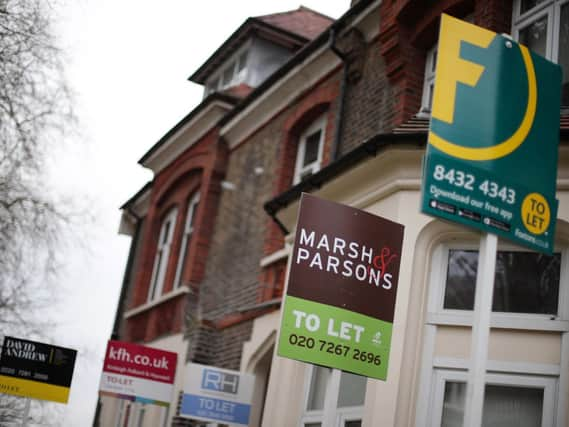Young Wiganers on Universal Credit cannot afford average borough rents


Young people in Wigan face a 32 per cent gap between the cost of renting a room and the equivalent category of local housing allowance, which is given to claimants to help them rent in the private sector.
There is also 11 per cent shortfall between the rate for one-bedroom properties and the average cost of becoming a tenant in one.
Advertisement
Hide AdAdvertisement
Hide AdCentrepoint says most under-35s will not be eligible for this higher rate to get a place on their own as the Government assumes they are able to return home or receiving financial assistance from parents.
Shockingly, the analysis found there were just four local authorities in the whole of England where the average rental cost was lower than the rate for shared accommodation.
The charity said this was leaving young people trying to make incredibly difficult financial calculations as well as negotiating the uncertainty of the Covid-19 pandemic.
The Department for Work and Pensions (DWP) said it had invested more money into benefits and help was available for those struggling.
Advertisement
Hide AdAdvertisement
Hide AdHowever, the analysis, which compares the new local housing allowance rates introduced in April with local rental market data, suggests recent increases may not be enough.
Centrepoint’s director of policy and communications Balbir Chatrik said: “Universal Credit is forcing too many young people to choose between paying rent and food.
“These are impossible choices to make at the best of times but, in the middle of an unprecedented health and economic emergency, it’s clear the rules need urgent change.
“Ministers already know this. That is why the Chancellor announced vulnerable young people would eventually receive more support with rental costs in his Budget and why, at the beginning of lockdown, he uprated local housing allowance to bring it closer to the true cost of renting.
Advertisement
Hide AdAdvertisement
Hide Ad“These were important first steps but coronavirus and its fallout means we can’t stop there.”
The data shows that in Wigan the local housing allowance rate for someone who has exclusive use of a bedroom but shares the other facilities in a house is £266.
However, the average monthly cost of renting a room in the borough is £392, a whopping £126 higher than the amount given in benefits.
For those who are entitled to receive the rate for a one-bedroom property on their own there is slightly better news as the rate for that category is now £350.
Advertisement
Hide AdAdvertisement
Hide AdHowever, they still have to find an extra £44 to pay the average £394 monthly rent for a one-bedroom house in the borough.
The data shows just how unaffordable renting is for many young Universal Credit claimants across England.
As well as there only being a handful of council areas where the average room rental is lower than the local housing allowance, there are 88 where the gap between renting a room in a house and the shared accommodation rate is £100 or more.
Some vulnerable young people, such as care leavers aged 18 to 21 and homelessness hostel leavers over 25, can automatically claim the higher one-bed rate.
Advertisement
Hide AdAdvertisement
Hide AdFollowing a Centrepoint campaign, care and hostel leavers under 25 will also get this bigger amount from 2023.
A DWP spokesperson said: “We currently spend over £95bn a year on working-age benefits and remain committed to supporting the most vulnerable in society.
“In response to the Covid-19 emergency we have increased local housing allowance rates, including the shared accommodation element, benefiting over one million households by £600 a year on average.
“In addition, £180m of discretionary housing payments are available with those struggling financially able to apply regardless of age. And we’ve raised Universal Credit by £1,040 a year.”